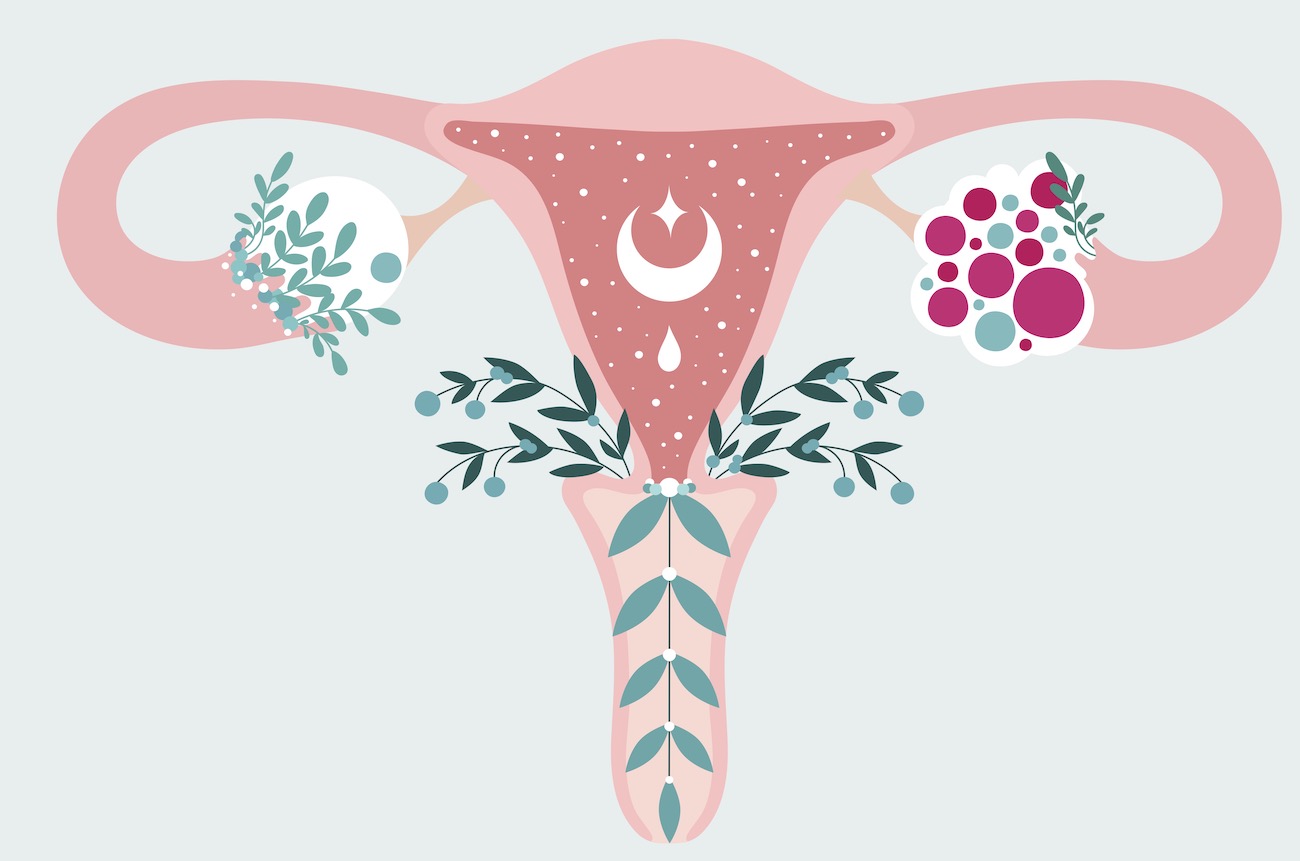Endometriosis is a chronic and often painful condition that affects the reproductive system. It occurs when the tissue that lines the uterus grows outside of it, attaching to other organs such as the ovaries, fallopian tubes, and bowel. This tissue responds to the menstrual cycle, just like the endometrium inside the uterus, which means that it thickens and sheds every month. However, unlike the endometrium, this tissue has nowhere to go, causing pain, inflammation, and scarring.
The inflammation and scarring caused by endometriosis can damage the ovaries, affecting their ability to produce healthy eggs. Moreover, the adhesions and scar tissue can block the fallopian tubes, preventing the eggs from reaching the uterus for fertilization. In some cases, endometriosis can also affect the quality of the eggs themselves, making them less likely to fertilize, implant, or develop into a healthy pregnancy.
Endometriosis and Egg Quality
Endometriosis can affect egg quality in several ways. First, the inflammation and oxidative stress caused by the condition can damage the DNA inside the eggs, leading to chromosomal abnormalities and genetic defects. Second, the hormonal imbalances caused by endometriosis can disrupt the delicate balance of hormones that regulate ovulation, leading to irregular cycles and ovulatory dysfunction. Finally, the adhesions and scar tissue caused by endometriosis can impair the blood flow to the ovaries, reducing their oxygen and nutrient supply, which can affect the health and function of the eggs.
Research has shown that women with endometriosis have a reduced ovarian reserve, which means that they have fewer eggs available for fertilization. Moreover, the eggs they do have may have a lower quality, making them less likely to fertilize or develop into healthy embryos. Studies have also found that endometriosis can increase the risk of miscarriage, preterm birth, and other complications during pregnancy.
Diagnosis and Treatment Options for Endometriosis
If you suspect that you have endometriosis and are struggling to conceive, it’s essential to seek medical help as soon as possible. Your doctor can perform a physical exam, pelvic ultrasound, or laparoscopy to diagnose the condition and determine its severity. Once diagnosed, there are several treatment options available to manage endometriosis and improve your chances of conceiving.
One of the most common treatments for endometriosis is hormonal therapy, such as birth control pills, GnRH agonists, or progestins. These medications can suppress ovulation, reduce inflammation, and alleviate pain caused by endometriosis. However, they may also have side effects, such as hot flashes, mood swings, and weight gain. Moreover, they may not be suitable for women who want to conceive immediately, as they can delay ovulation and reduce fertility.
Another treatment option for endometriosis is surgery, such as laparoscopy or laparotomy. These procedures aim to remove the endometrial tissue, adhesions, and scar tissue that cause pain and infertility. Surgery may also improve the quality of the eggs and restore the normal anatomy of the reproductive system. However, surgery can be invasive, expensive, and may not guarantee complete relief from endometriosis symptoms or infertility.
Lifestyle Changes to Improve Fertility with Endometriosis
Apart from medical treatments, there are several lifestyle changes that women with endometriosis can make to improve their fertility. These include:
- Maintaining a healthy weight: Being overweight or underweight can affect ovulation and fertility. Women with endometriosis should aim for a healthy BMI (body mass index) and avoid crash diets or extreme exercise regimes that can disrupt hormonal balance.
- Reducing stress: Stress can worsen endometriosis symptoms and affect fertility. Women with endometriosis should practice relaxation techniques, such as yoga, meditation, or deep breathing, and avoid stressful situations as much as possible.
- Avoiding toxins: Exposure to environmental toxins, such as pesticides, chemicals, and plastics, can affect fertility and exacerbate endometriosis symptoms. Women with endometriosis should avoid smoking, alcohol, and caffeine and opt for organic foods and natural products whenever possible.
- Getting enough sleep: Sleep is crucial for hormonal balance and fertility. Women with endometriosis should aim for 7-8 hours of sleep per night and establish a regular sleep routine.
- Exercising in moderation: Regular exercise can improve fertility and reduce endometriosis symptoms. However, women with endometriosis should avoid high-impact or strenuous activities that can cause pain or injury. Instead, they should opt for gentle exercises, such as walking, swimming, or yoga.
Foods and Supplements to Boost Egg Quality
In addition to lifestyle changes, certain foods and supplements can also improve egg quality and fertility in women with endometriosis. These include:
- Antioxidant-rich foods: Antioxidants, such as vitamin C, vitamin E, and beta-carotene, can reduce oxidative stress and inflammation, improving egg quality and fertility. Foods rich in antioxidants include berries, citrus fruits, leafy greens, nuts, and seeds.
- Omega-3 fatty acids: Omega-3 fatty acids, such as those found in fatty fish, flaxseeds, and walnuts, can improve hormonal balance and reduce inflammation, enhancing fertility and egg quality.
- Coenzyme Q10: Coenzyme Q10 is a powerful antioxidant that can improve mitochondrial function, reducing oxidative stress and improving egg quality. It is found in foods such as fatty fish, organ meats, and whole grains, and is also available as a supplement.
- Vitamin D: Vitamin D is crucial for bone health and immune function, but it also plays a role in fertility and reproduction. Women with endometriosis should ensure they get enough vitamin D through sunlight exposure, fortified foods, or supplements.
Alternative Therapies
Several alternative therapies may also improve endometriosis symptoms and fertility. These include:
- Acupuncture: Acupuncture involves the insertion of fine needles into specific points on the body to stimulate blood flow and promote healing. Some studies have shown that acupuncture can reduce pain and inflammation caused by endometriosis and improve fertility.
- Herbal medicine: Herbal medicine involves the use of plant extracts to treat various conditions, including endometriosis and infertility. Some herbs, such as chasteberry, dong quai, and red clover, may improve hormonal balance and reduce inflammation, enhancing fertility.
- Mind-body therapies: Mind-body therapies, such as cognitive-behavioral therapy, mindfulness, and hypnotherapy, can reduce stress and anxiety, improving endometriosis symptoms and fertility.
If you have been trying to conceive for several months without success and suspect that endometriosis may be the cause, it’s essential to seek professional help as soon as possible. Your doctor can perform tests and exams to diagnose the condition and recommend appropriate treatments. They can also refer you to a fertility specialist or mental health professional if necessary. Remember, infertility is a medical condition that requires medical attention, and there are many treatment options available to manage endometriosis-related infertility.
Endometriosis can have a significant impact on fertility, affecting egg quality, ovulation, and the health of the reproductive system. However, there are many ways that women with endometriosis can improve their chances of conceiving, including medical treatments, lifestyle changes, and alternative therapies. By taking a proactive approach to their health and fertility, women with endometriosis can overcome the challenges of infertility and achieve their dreams of motherhood.




